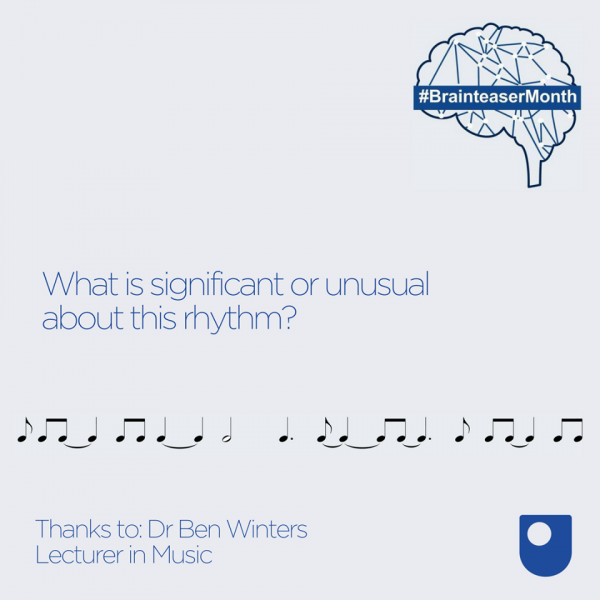January – a month of little cash, and a distinct lack of motivation. Well, not for our amazing social media audience. Having launched Brainteaser Month in 2017, reaching 6.5 million, we wanted to stimulate your neurons once again.
Throughout January 2018, fuelled by the brainpower of over 30 of our academics, we hosted a series of ethical dilemmas, head-to-head debates, puzzles, and polls, across Facebook, Instagram, and Twitter. #BrainteaserMonth 2018 reached an impressive 21 million people and had over 200,000 comments, likes, and responses. Here are six of the most popular to test those brain cells.
1) Worming their way in
An interesting video clip left over 28,000 of you scratching your heads wondering what it was. Lecturer in Health Sciences, Dr Rachel McMullan, provided the time-lapse video of a batch of nematode worms, C. Elegans. They are initially attracted to the splodge of Serratia marcescens bacteria for food, then learn to avoid it.
2) Value of life
An ethical question from Lecturer in Philosophy, Dr Raamy Majeed, to determine if you are a ‘consequentialist’ or a ‘deontologist’. Would you divert a runaway trolley so that it would injure one person to save five others? Over 450 of you contributed to our debate on Facebook.
3) The missing money
If you dread adding up the bill in a restaurant, you can probably sympathise with this bellboy and his missing £1. Senior Lecturer in Combinatorics, Dr Robert Brignall, explained that, if you want the correct answer, you have to ask the correct question.
4) Unusual artefacts
PhD Researcher in the Faculty of Arts and Social Sciences, Adam Parker, put us onto this ancient artefact:

Adam, who is completing his PhD in Archaeology of magic in Ancient Britain, wanted you to guess when the ancient artefact was popular, and what it was used for. There were lots of interesting responses.
5) Words within a word
Which six letter word contains ten other words – read back or forth – without rearranging any of its letters? The answer generated a little online sparring.
6) What is rhythm backwards?
A piece of music by the French composer, Olivier Messiaen, called ‘Quatour pour la Fin du Temps’, is unusual in two ways – can you figure out how?

Lecturer in Music, Dr Ben Winters, explains what is known as ‘a non-retrogradable rhythm’.



